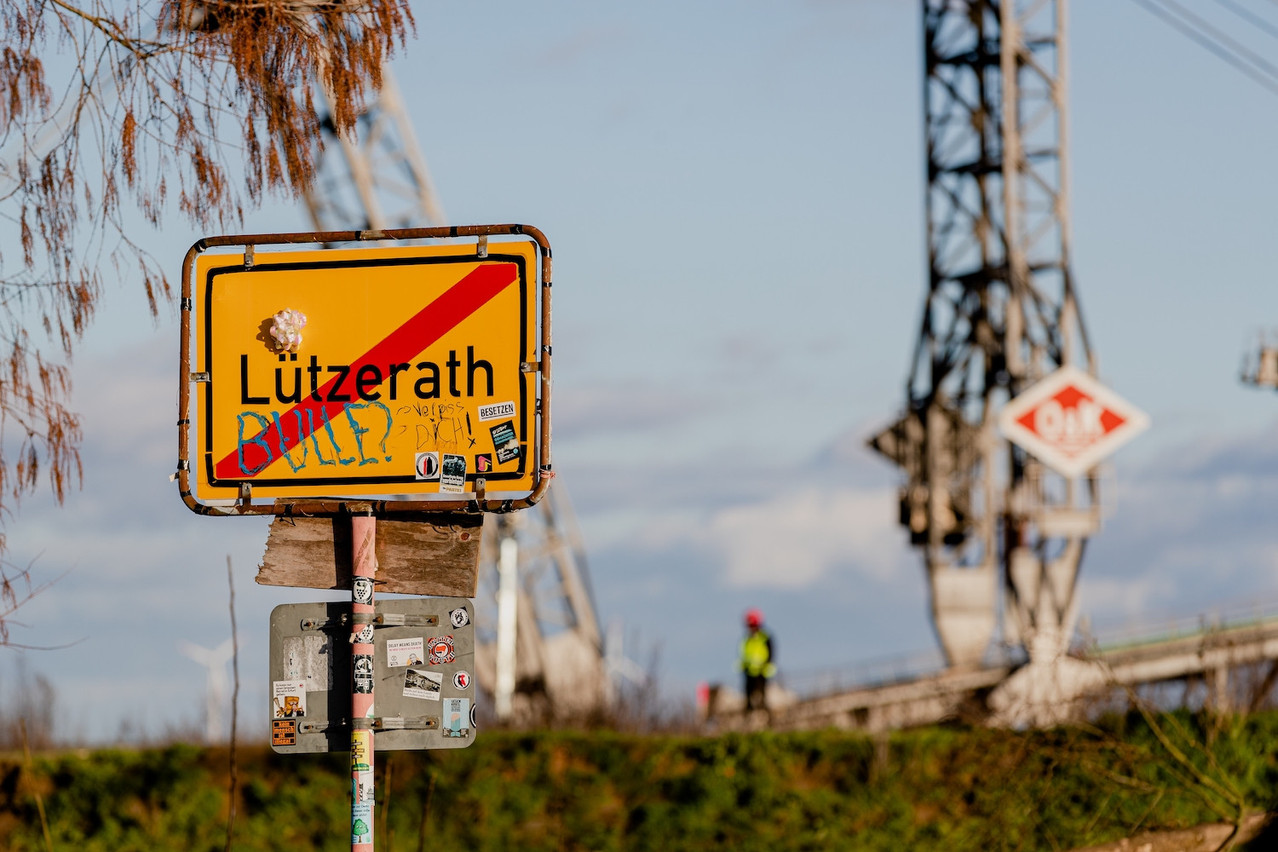The hamlet of Lützerath in North-Rhine Westphalia, owned by energy provider RWE, is being razed to the ground to allow the expansion of a nearby open-cast brown coal mine. The last resident moved out roughly a year ago and police last week Wednesday began removing protesters from the site.
“The situation of Lützerath is of symbolic and concrete importance for Luxembourg,” said Greenpeace Luxembourg director Raymond Aendekerk in a statement last week. “Not only does this demonstration of violence take place just a few hours from our home; worse: most likely, part of the coal from this open pit will be used to power the grand duchy.”
The energy ministry on Monday confirmed to Delano that Luxembourg households are powered 100% by electricity from renewable sources. This is not the case, however, for industry contracts, with more than half (58%) of imported energy coming from Germany. The remaining 42% are shared equally between Belgium and France.
Intervention
Greenpeace had urged the government to intervene against the expansion of the coal mine. “It’s time to send a strong signal to fossil fuel companies. Something has to change,” Aendekerk said.
Asked whether the ministry had at any level been in contact with authorities in Germany to discuss the expansion of the Lützerath mine and the removal of protesters, a spokesperson for the ministry replied by email: “The minister for energy supports that the German coal phase-out happens earlier than planned, in 2030 instead of 2038.”
Like Germany’s economy and climate minister Robert Habeck, Luxembourg’s Claude Turmes is from the Green party. The regional government of North-Rhine Westphalia also has a green minister for energy, climate, economy and industry, Mona Neubaur.
Contradicting reports
Lützerath is expected to be the last village to be demolished to make way for the surface mine in nearby Garzweiler. Germany has promised to phase out coal-fired power by 2030, bringing the date forward from a previous target of 2038.
With Germany heavily reliant on Russian gas, the country’s radical cuts of supplies to Europe have left it searching for alternative types of energy. RWE wants to start mining coal in Lützerath as early as this winter, saying it is needed to ensure the security of energy supply.
The government of North-Rhine Westphalia has said that until 2030, between 187m to 238m tons of brown coal from the Garzweiler mine are needed. Without the coal buried underneath Lützerath, only 170m tons can be mined, a report said.
A study commissioned by climate activists opposing the expansion of the mine on the other hand claims that only 93m to 124m tons of coal from Garzweiler are required to secure energy supplies.
